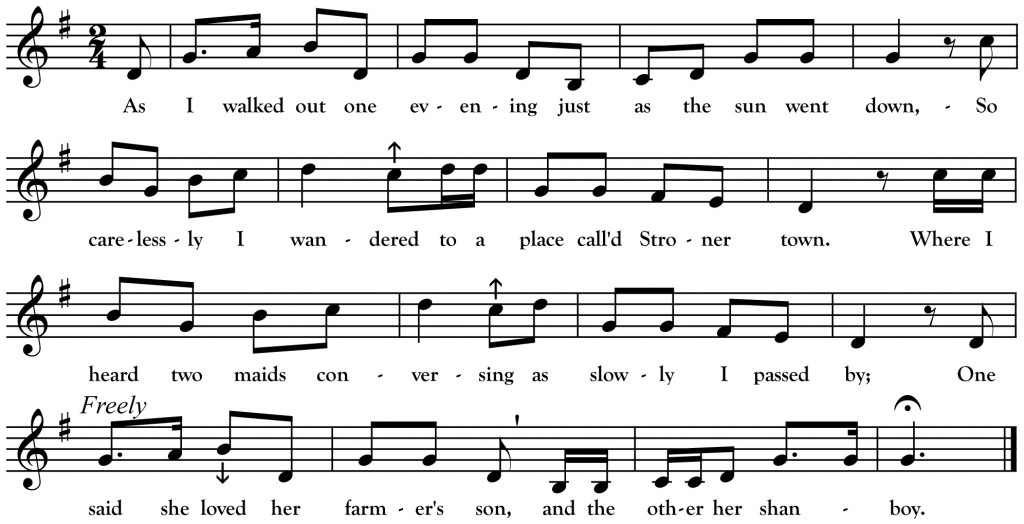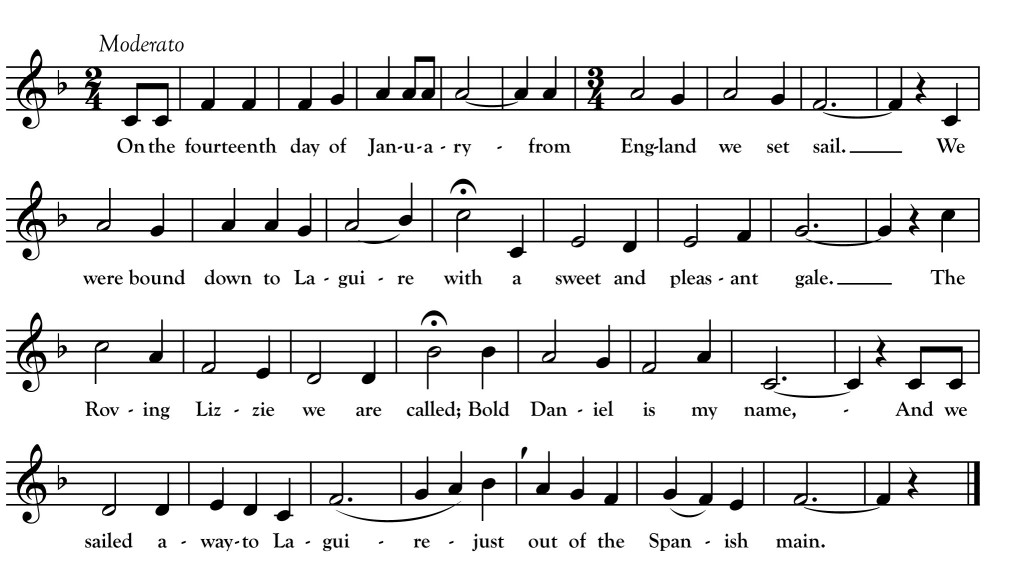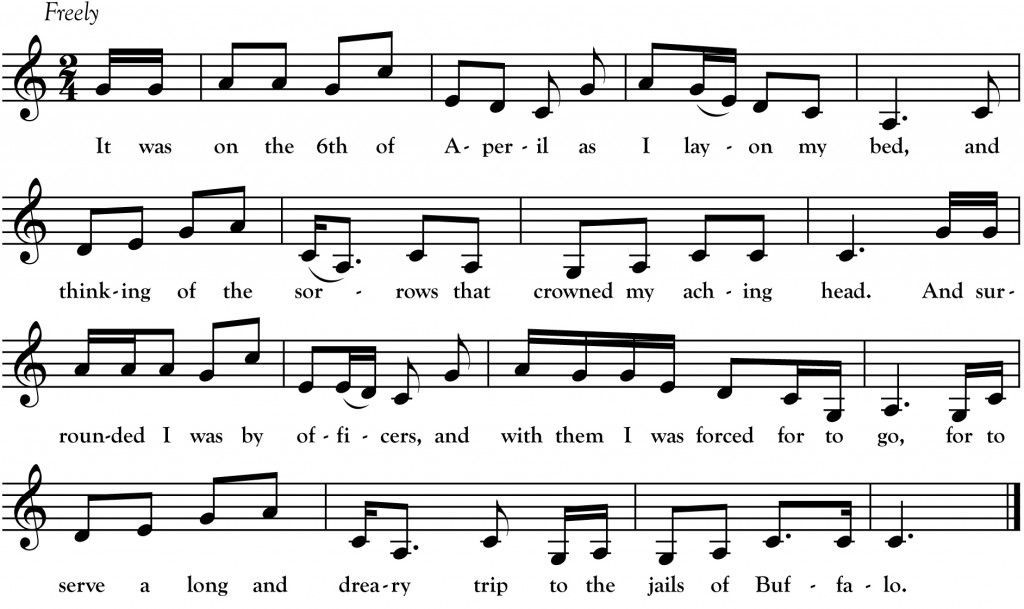Shanty Boy (and the Farmer’s Son)

As I walked out one evening just as the sun went down,
So carelessly I wandered to a place called Stroner town,
Where I heard two maids conversing as slowly I passed by,
One said she loved her farmer’s son, and the other her shanty boy.
The one that loved her farmer’s son those words I heard her say,
The reason why she loved him, at home with her he’d stay,
He would stay at home all winter, to the woods he would not go,
And when the spring it did come in his grounds he’d plow and sow.
“All for to plow and sow your land,” the other girl did say,
If the crops should prove a failure your debts you couldn’t pay;
If the crops should prove a failure, or the grain market be low,
The sheriff often sells you out to pay the debts you owe.”
“As for the sheriff selling the lot, it does not me alarm,
For there’s no need of going in debt if you are on a good farm;
You make your bread from off the land, need not work through storms and rain,
While your shanty boy works hard each day his family to maintain.”
“I only love my shanty boy who goes out in the fall,
He is both stout and hardy, well fit for every squall;
With pleasure I’ll receive him in the spring when he comes home,
And his money free he will share with me when your farmer’s son has none.”
“Oh, why do you love a shanty boy, to the wild woods he must go,
He is ordered out before daylight to work through rain and snow,
While happy and contented my farmer’s son can lie,
And tell to me some tales of love as the cold winds whistle by.”
“I don’t see why you love a farmer,” the other girl did say,
“The most of them they are so green the cows would eat for hay;
It is easy you may know them whenever they’re in town,
The small boys run up to them saying, ‘Rube, how are you down?’
“For what I have said of your shanty boy I hope you will pardon me,
And from that ignorant mossback I hope to soon get free,
And if ever I get rid of him for a shanty boy I will go,
I will leave him broken hearted his grounds to plow and sow.”
___________________________________________________________
When they met up in Virginia, MN in 1923, singer Michael Cassius Dean told song collector Franz Rickaby that he learned this song while himself working as a “shanty boy” (lumberjack) in Michigan around 1878. “Stronertown,” Dean said, was at the head of the Manistee River, six miles up from Manistee, Michigan. I find a Stronach, MI on modern maps that is likely the spot. The song is often called “The Shanty Boy and the Farmer’s Son” and it appears frequently in song collections made throughout the lumbering regions of the Great Lakes and Maritimes. It even managed the rare trip east across the Atlantic where it was collected in County Antrim by Sam Henry in 1936.
I transcribed the above melody from the 1924 recording of Dean made by Robert Winslow Gordon. Another, slightly different, version was transcribed by Rickaby in 1923 from the singing of Ed “Arkansaw” Springstead in my hometown Bemidji, MN.
This text belongs to a family of similar dialogue songs and poems that date back centuries in England, Scotland and Ireland. Its direct “parent” song may be “I Love My Sailor Boy” which also appears in Dean’s songster The Flying Cloud (my source for the above text). Shanty-boys sang at least a few songs poking fun at sober, boring farmers who, they assured themselves, were sadly lacking in the manly mystique personified by the men chopping down trees and heroically rafting them downriver to the sawmill.
More detailed information on this song from the Traditional Ballad Index


